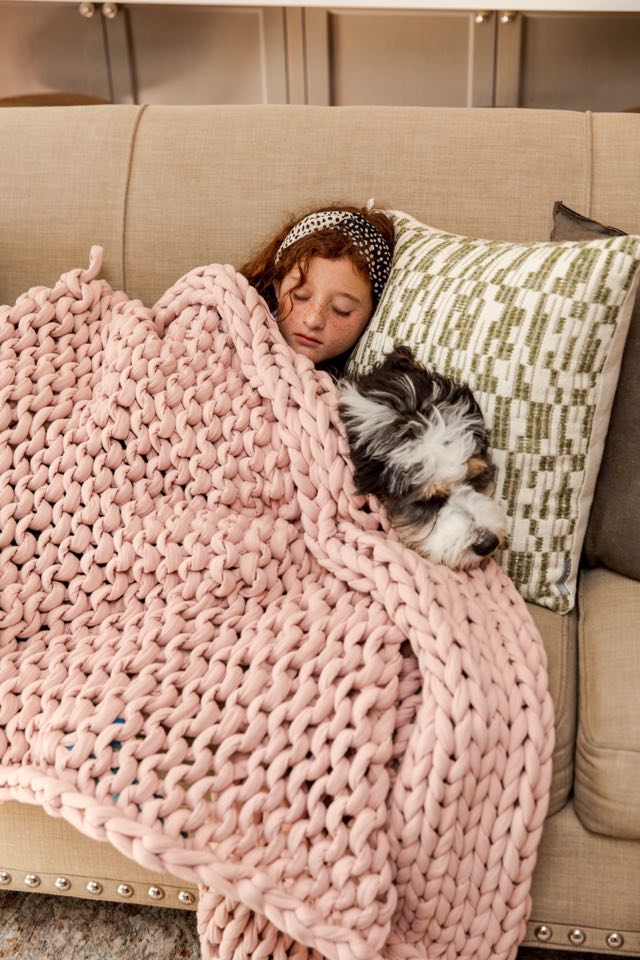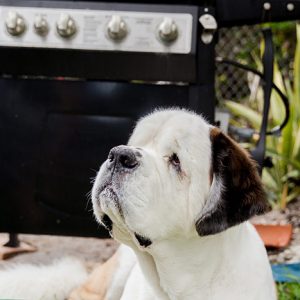
Thanksgiving Day Menu – Dangerous vs. Healthy Foods for Pets
The feeling of fall is in the air. Pumpkin spice is on every menu, the air is cool, the leaves are extraordinary colors, and Thanksgiving planning is underway! Thanksgiving is one of my all-time favorite holidays. And one of my favorite things about Thanksgiving is that it has become a holiday all about feasting on the amazing foods the season brings. We get so much pleasure from cooking and indulging, and I think our fur babies should get to enjoy the festivities too! But knowing what human foods our dogs and cats can eat may not be common knowledge.
Human Foods that are Toxic for Pets
There is no reason for our pets to be left out during this time of year. Giving your pets “human foods” can actually be extremely beneficial and provide great health benefits.
However, it is important to know which human foods dogs and cats can eat without getting ill. Learning how to prepare whole food nutrition is important so your pet does not end up with a belly ache.
So today, we’re discussing the typical autumn and Thanksgiving foods that are toxic for our pets and which ones can provide great health benefits for your pet when prepared correctly.
Just a little knowledge of the Thanksgiving Day pet dangers will help keep your family pet safe!
1. Onions, Garlic, Chives
I know…who knew? These food items are commonly used in preparing Thanksgiving dinner. Cats are more susceptible to the toxic effects of onions, garlic, and chives; however, dogs are also at risk.
The toxicity causes a condition called hemolytic anemia, which is characterized by the bursting of red blood cells circulating through your pet’s body. Ingestion can also cause less critical side effects such as gastrointestinal irritation.
Toxicity is normally diagnosed through history, clinical signs, and microscopic evaluation of red blood cells.
2. Grapes and Raisins
Some fruits are more common for consumption during autumn months. Although the toxic substance within grapes and raisins is unknown, these fruits can cause kidney failure in dogs. It is best to avoid feeding grapes and raisins to dogs altogether.
3. Macadamia Nuts
Although not as common, many people bake cookies and desserts with macadamia nuts. Weakness, depression, vomiting, tremors, and hyperthermia are common clinical signs associated with macadamia nut ingestion in dogs. Signs usually appear within 12 hours of ingestion and can last approximately 12-to-48 hours.
4. Other Nuts
Nuts, including almonds, pecans, and walnuts, contain high amounts of oils and fats. Foods that are high in oils and fats can cause vomiting, diarrhea, and potentially pancreatitis in pets.
5. Milk and Dairy
Milk and cream are common ingredients in Thanksgiving foods. Please be cautious with dairy. Despite what many people believe, pets do not digest dairy products well. Dogs and cats do not have significant amounts of lactase, the enzyme that breaks down lactose in milk. Milk and other dairy-based products cause your pet to suffer from diarrhea or other stomach upset.
6. Salt and Salty Snack Foods
Pretzels and potato chips are in abundance during the football season. Large amounts of salt can produce excessive thirst and urination or even sodium-ion poisoning in pets. Salt toxicity clinical signs include vomiting, diarrhea, depression, tremors, elevated body temperature, seizures, and even death. Please avoid giving your pets foods that are high in sodium.
7. Alcohol
I know, I know, this seems obvious, right?
Well, you would be surprised how many times I have seen alcohol intoxication on emergency. Most cases are accidents.
Clinical signs include vomiting, diarrhea, decreased coordination, central nervous system depression, difficulty breathing, tremors, abnormal blood acidity, coma, and even death. If your pet has ingested alcohol, see or contact your veterinarian immediately.
8. Chocolate, Coffee, and Caffeine
Desserts are a big part of the Thanksgiving meal, especially if you have children. Chocolate contains two ingredients that are toxic in large quantities: theobromine and caffeine. Different types of chocolate contain different amounts of theobromine and caffeine; therefore, the amount and the type of chocolate your pet eats plays a role in its toxic effects. Darker chocolate is more dangerous than milk chocolate. White chocolate has the lowest level of theobromine, while baking chocolate contains the highest.
Clinical signs of chocolate toxicity include diarrhea or vomiting from the high-fat content in the chocolate, restlessness, hyperactivity, muscle twitching, tremors, increased drinking and urination, excessive panting, irritability, increased heart rate, and abnormal heart rhythm.
9. Raw or Undercooked Meat, Eggs, and Bones
Raw meat and raw eggs can contain bacteria such as salmonella and E. coli that can be harmful to pets and humans. Pets can choke on bones or sustain injury should the bone splinter or become lodged in or puncture their digestive tract.
10. Yeast Dough
I have seen this emergency a few times.
When pets digest raw yeast dough, the dough can expand and rise in the GI tract, causing gas to accumulate. This can be painful and cause the stomach to bloat, and potentially twist, becoming a life-threatening emergency.
In addition, the yeast produces ethanol as a bi-product and a dog ingesting raw dough may become drunk (see the section on alcohol above).
Tips for Preparing Human Foods that are Safe for Pets
Not all Thanksgiving Day treats are bad for your pets!
Now that we discussed all the human foods we should avoid during the holidays, we should discuss what we can let our pets indulge in. Whole foods are foods based on whole ingredients, with minimal processing, preservatives, and additives. These include fresh fruits, vegetables, grains, seeds, some nuts, and meats.
Here are some of my tops tips for preparing human foods that are safe for your pets to eat?
1. Transition with Bland Foods
Pets who have been fed the same diet consistently over a period of time need to transition into whole foods slowly.
Start with blander foods first. Do not cook food in fats such as oils or butters.
I recommend boiling boneless, skinless chicken breast in water or low sodium chicken broth when starting with meats. High fats, too early, can lead to gastrointestinal upset and in severe cases pancreatitis.
2. Do Not Cook with Intense Spices
Avoid certain seasonings, such as onion powder, garlic powder, and pepper-based spices. Fresh herbs that are great to cook with are fresh parsley, oregano, or thyme.
3. Avoid Bones in Meats
Bones can be a hazard for intestinal obstruction. When using bones with meats, ensure they are fully ground.
4. Pure Original Form
Try and feed your pets the pure, original form of foods like carrots or green beans.
5. Avoid Rice with Seasoning Packets
Feed rice and grains in their original form without seasoning.
6. Ensure Home Cooked Diets are Complete and Balanced
If you elect to home cook for your pet, make sure the diet is balanced and complete. Many pet parents do not realize that preparing a whole food nutrition diet every day for their pet can be wonderful, but there are many nutrients, vitamins, and minerals that must be included in the diet in a balanced way.
Pets can become deficient in certain nutrients if a proper home cooked diet is not complete. If you are home cooking your pet’s meals, I recommend referring to the Balance IT website. This website, created by a veterinary nutritionist, will ensure the meals you cook for your pet are balanced and complete.
Final Thoughts on What Human Foods Dogs and Cats Can Eat
I hope this helps all my pet parents be more aware of the dangers that lurk on the Thanksgiving Day table.
There is no need for your pets to feel left out during the holidays. Let them indulge on Thanksgiving!
Knowing what human foods dogs and cats can eat and how to properly prepare the food so that our pets do not become ill is so important.
My goal is to always keep our pets safe and healthy. As much as I love seeing them walk through my animal hospital doors, I prefer to help avoid sick trips to the veterinarian, especially during Thanksgiving when you should be spending time being grateful with your closest friends, family, and pets!
Happy Thanksgiving, everyone!




